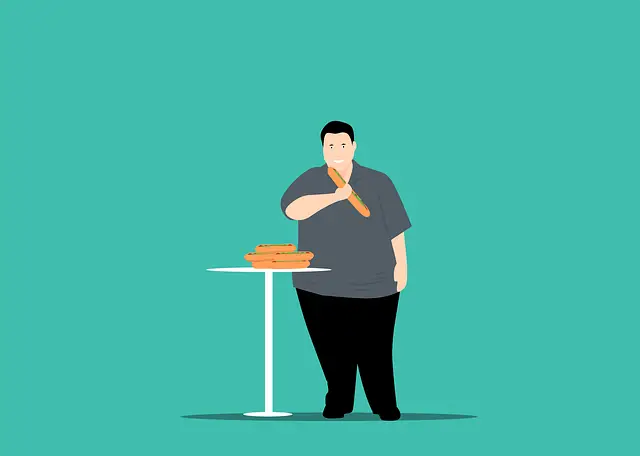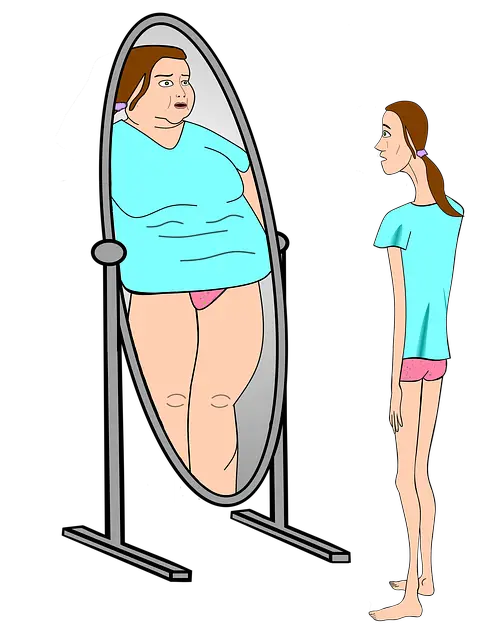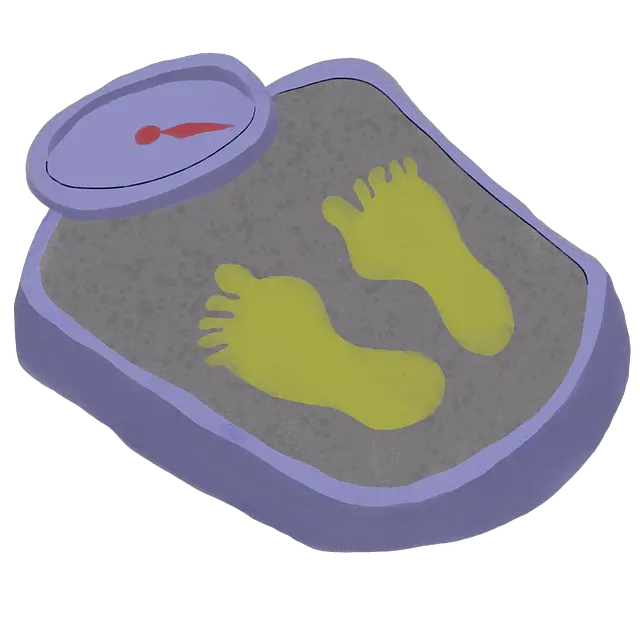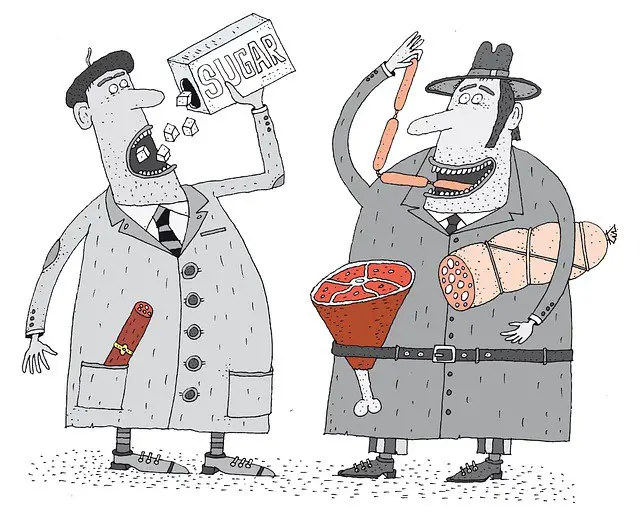There are many relationships that people have in this life, but your relationship with food is the most constant and longest. The kind of foods you eat, how frequently you eat them, and how much you eat can go a long way in determining your health.
Many people struggle with maintaining a healthy relationship with their food. This leads to the development of eating disorders. In this article, we will look at the causes of disordered eating, the types of disordered eating, and how to recover from binge eating.
What Are Eating Disorders?

In simple terms, an eating disorder refers to a condition characterized by persistent eating patterns that negatively impact your health and mental health, making you unable to perform your day-to-day functions. Eating disorders are considered mental illnesses.
The most common eating disorders include:
Anorexia Nervosa

Anorexia nervosa is a common eating disorder characterized by an intense fear of gaining weight, an extremely low weight, and a distorted body image. This disorder is caused by:
- Peer pressure: society idolizes beauty with being thin, so most people are pushed into extreme measures to induce weight loss.
- Obsessive-compulsive personality traits: People with these personality traits have a perfectionist tendency which makes them believe they are never thin enough. The need to lose an unattainable amount of weight could lead to anxiety and deterioration in mental health.
- Genetics may play a role in causing anorexia.
Common symptoms of this eating disorder are:
- Extreme weight loss
- Low blood pressure
- Absence of menstruations
- Severe restrictive eating
- Frequently skipping meals
- Denial of hunger
- Repeated weighing oneself
Bulimia Nervosa
Bulimia nervosa is another eating disorder characterized by eating a large amount of food and then purging to reduce caloric intake. This is an unhealthy way to lose weight since it involves binge eating and then using unhealthy weight-loss methods. There are two types of bulimia, purging, and non-purging type. In purging, one induces vomiting.
For the non-purging type, one can put themselves through extremely strenuous exercise, long-term fasting, or use laxatives and diuretics to induce weight loss.
Avoidant Restrictive Food Intake Disorder (ARFID)
This is an eating disorder characterized by avoiding certain types of foods. Foods may be restricted due to sensory-based avoidance, or fear of certain foods because of a bad experience.
Binge Eating Disorder
This is the most common eating disorder in the world. It is characterized by eating large amounts of food and feeling unable to stop eating. Binge eating is life-threatening because of the other problems that arise from it.
When you binge eat, you eat continuously, until it is out of control and you regularly eat a larger amount than you normally would. What triggers binge eating?
If there is a history of binge eating disorder, you are more likely to develop an eating disorder. Dieting or restrictive eating can also trigger binge eating disorders. Psychological triggers like stress, an obscured body image, or the availability of trigger foods may cause one to try and eat their feelings.
The symptoms of binge eating disorder include:
- Eating a large amount of food within two hours
- Occasionally eating in secret
- Eating without paying attention to satiety cues
- Dieting without weight loss
Binge eating disorders can cause anxiety and depression because of a poor body image. They can lead to a feeling of guilt and shame. It can also lead to overweight and obesity which predispose you to high blood pressure, type 2 diabetes, and cardiovascular diseases.
Now that you know what may cause binge eating and other problems that may arise from it, let’s see how to recover from a binge eating disorder.
How Many Calories Is Considered a Binge?
The recommended caloric intake of a healthy adult ranges from 1800 to 2000 kcals depending on their needs. A binge eater can consume 5,000 to 15,000 kcals in one sitting. Most of these calories are from snacks that are overeaten throughout the day, in addition to the three main meals.
How to Recover from A Binge Eating Disorder
Because binge eating disorder (BED) is a mental illness, treatment in clinical settings is necessary. Professional support will help you stay and trust the recovery process. The journey will not be easy so this support will come in handy in moments during diet recovery when you want to give up.
Another aspect that is important in binge eating disorder treatment is nutritional care. With binge eating, you need to develop a better relationship with food to make a full recovery. You cannot completely avoid food because you eat to live, but you can change your perspective on food.
Here are a few tips that can help a person with coping with bingeing behaviors.
Nobody Is Perfect

Let go of the perfectionist tendency and embrace your flaws. Your imperfections are not supposed to bring you shame or guilt. Stopping binge eating behaviors can be difficult if you term things as good or bad. There’s no perfect meal plan or good body weight. View everything in terms of health, rather than good or bad.
Trying to stick to the perfect meal plan could lead to harsh punishments, further causing more harm than good. Eating disorder treatment does not focus on perfection but on growth and forgiveness.
Health is About Balance
Eating disorders are characterized by extreme measures, bingeing too much food, too much exercise, or too little food intake. So when treating eating disorders, you need to find the perfect balance in these behaviors. Lack of balance could throw off your hormones affecting hunger and stress.
Coming up with a good physical care plan is an essential part of how to recover from a binge eating disorder. Get enough rest, stay active, and seek treatment for any condition that may affect your health.
Regulate your eating patterns when you are on treatment for a binge eating disorder (BED). Only eat food when you are hungry, and not for any other reason. Moreover, your relationship with food should be about quality and not quantity. What type of fat are you eating? Is your food balanced? When on your journey to recovery, pick healthy foods over processed and junk food
Consider working with a nutritionist who can help you develop healthier eating behaviors. Having a binge eating disorder means you have a preference for certain foods that probably help you forget about your feelings. A nutritionist with experience with other binge eaters can help you learn intuitive eating. Intuitive eating simply means having a good relationship with food, all types of foods.
Know Your Bingeing Triggers

How to recover from a binge eating disorder is finding the root cause of the problem. What is making you binge eat? Are your triggers psychological? Is stress making you eat your feelings away? Sometimes your emotions may be the cause of BED. Once you know whether your triggers are psychological or emotional you can learn better coping skills to help you manage your triggers.
Why is it important for your treatment team to know what’s causing your BED? If they don’t address the main cause, you will continue to binge eat or even resort to substance use.
Stay Clear of Your Triggers

Have you figured out what’s increasing the feeling of continuously wanting to eat? Yeah, stay away from that. Does seeing that weighing scale make you think, what’s the point? Give it to a fitness enthusiast as an early birthday gift! Habits like calorie counting, comparing your physique to others online and in real life, and watching films on binge eating may trigger binge eating disorders.
Trigger foods can also cause you to fall off the wagon when your own the road to recovery. High sugar and fat, and salty foods like chips, fries, cakes, and junk foods are the most common trigger foods for binge eating. Any food that will bring the feeling of losing control when eating, avoid that!
Dieting is Off Limits
The diet culture may be the in thing at this moment with everyone trying to make the healthiest dietary decisions to improve their quality of life. However, in every article you read or any podcast you listen to, there’s always a section on, who can not be on this diet. For all restrictive diets, individuals with BED are strongly advised against participating in them.
Why? Most diets follow the “feast and restrict” mentality. An individual with BED is already struggling with control when eating, imagine if you introduced the feasting aspect! With other eating disorders like anorexia and bulimia, these individuals cannot control how long they fast or exercise, so introducing restrictions will negatively affect physical and mental functioning.
Even though BED is not the main issue to be addressed during treatment, reducing triggers that could worsen your situation will go a long way to ensure your recovery.
The Scale’s Got to Go

People with BED allow their weight and body to define who they are, which is wrong. Your body type or weight is not who you are and should not be a measure of whether you are healthy or worthy.
When trying to lose weight, it is no surprise that a person would be obsessed with the numbers on their bathroom scale. But don’t let that scale dictate anything about you. If you are on a binge eating disorder recovery, I would advise not owning a bathroom scale. If you already have one, give it up for donation!
Look Beyond Exercise

Exercise is a bittersweet pill to swallow for anyone with BED. Some people may tell others to exercise more to help with weight loss, not keeping in mind how they struggle to regulate the intensity of their exercise.
The moment I talk about how to recover from a binge eating disorder and physical activity, I am shifting your focus from working out and exercising to movement. You may not be weight lifting or doing any aerobic exercises, but you are not sedentary, this counts for something. Any activity that gets your body in motion from dancing, mopping, and horseback riding to your evening dog walks. All these count as movement.
Consider Professional Support
To recover from a binge eating disorder, you may need the help of a professional who has handled BED patients before. The journey to binge eating disorder recovery can be lonely so don’t do it alone.
Other tips are meant to complement professional treatment rather than supplement it. So if you’d like to successfully stop binge eating, ensure you have an expert as your wingman in improving your relationship with food.
Go Easy on You
Stopping binge eating is not a sprint but a marathon, so run it. When you fall, don’t beat yourself down and give up, pick yourself up. It is important to repeat positive affirmations to yourself because binge behaviors feed on negativity. Remind yourself that it is about growth and not perfection. Extend to yourself the same kindness you show others.
Moving Forward
Remember that binge eating disorder is a mental illness and is not your fault. Beating yourself down won’t do anything for you, so motivate yourself instead. Before starting any weight loss program or diet, get approval from your nutritionist.
Professional support plus personal effort is the best BED treatment. Please do not do your recovery journey alone. Reach out to friends and family members who can keep you accountable and motivate you.
How do you cope or help a loved one cope with a binge eating disorder? Do you have professional support on your binge eating disorder recovery journey? Drop a word of encouragement in the comment section as a reminder to others that they are not alone.







